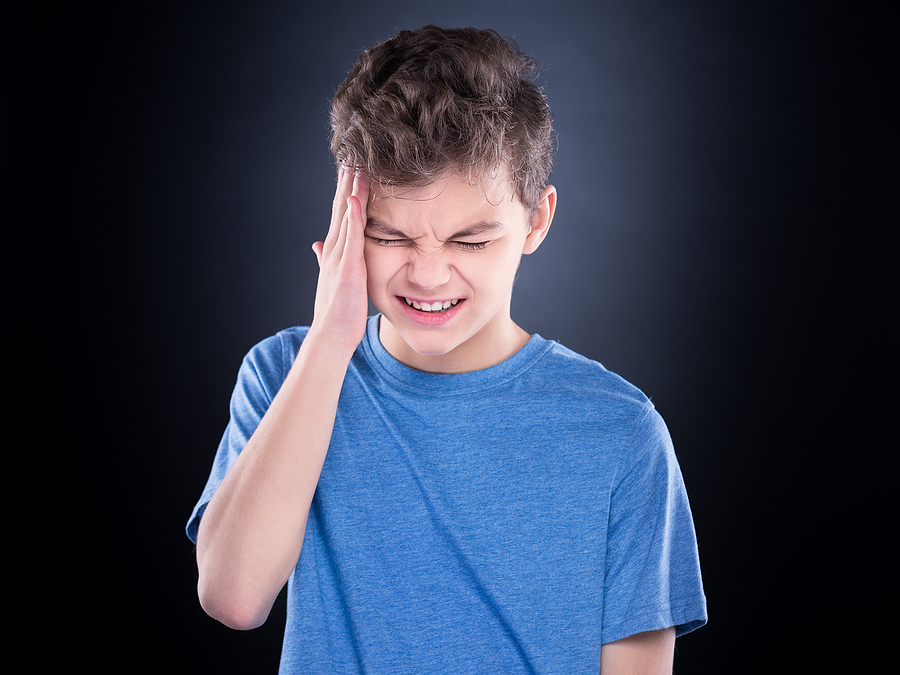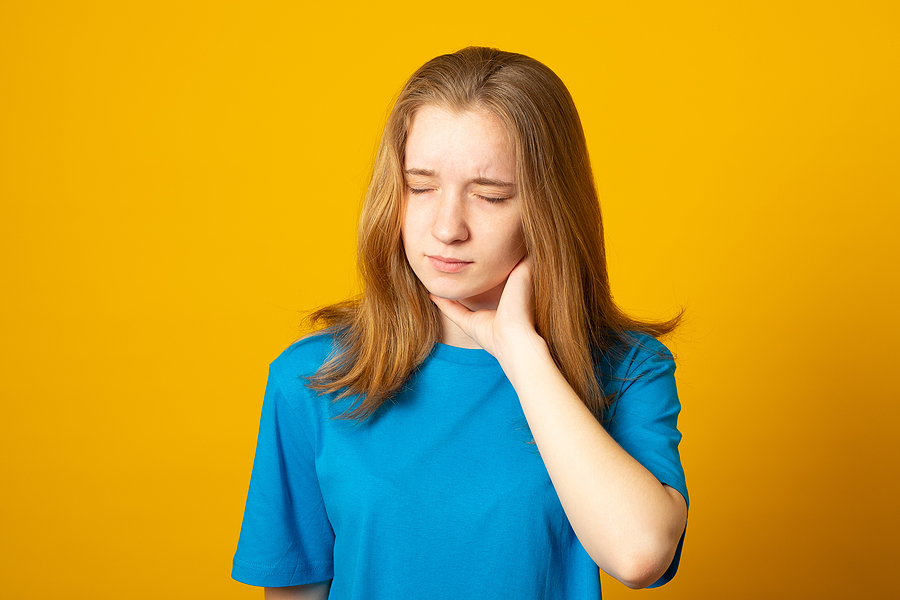It is abnormal for children to experience headaches or facial pain. When they do, it is usually a warning sign of a deeper problem. Parents should seek medical help as soon as possible to find the source and rule out a serious health risk.
TMD Symptoms in Children
TMJ Treatment in London, Ontario: Solutions for Children

One reason children may get headaches is a structural imbalance between the upper and lower jaws. The three main types of imbalances are a narrow upper arch, a deficient lower jaw, and a deep overbite. Any type of imbalance can cause problems like:
Tired Jaws
The jaws are designed to withstand the repetitive movement and pressure associated with biting and chewing. Therefore, a healthy jaw never gets tired. A tired jaw means that it is not properly aligned. When children complain of tired jaws after chewing gum or eating chewy foods, it usually means that something is wrong. Most often, the lower jaw is deficient or too far behind the upper jaw, and while it may appear as protruding upper teeth, it is actually a misaligned lower jaw.


Headaches
Children do not normally experience pain in their bodies unless they have injured themselves in some way. Headaches, therefore, are considered abnormal, especially in young children. When a child experiences headaches, it may indicate that their system is overloaded from jaw joint problems. Recurring headaches, once or twice a month, is an early warning sign that needs to be investigated as soon as possible by a medical professional or dentist.
Neck Pain
A jaw problem plus poor posture strains the neck muscles, leading to pain and discomfort. If these issues are not corrected, the pain will get worse as the child ages. For our younger patients, early evaluation and intervention can prevent a lifetime of troublesome and even debilitating symptoms.



